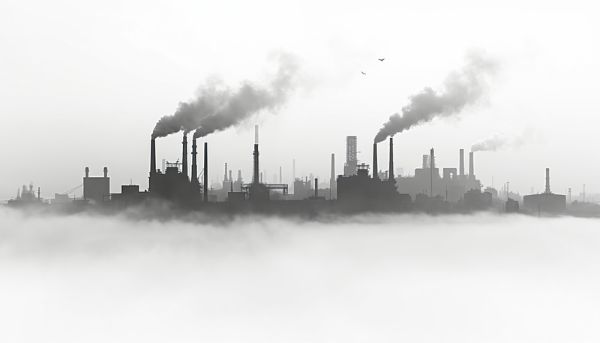An article appearing in yesterday’s The Guardian displays a headline that links catastrophic climate change to the survival of the insurance industry and capitalism. The Guardian would be deemed a progressive news publication with strong environmental advocacy bonafides. So is this article hyperbole or the truth?
I have been receiving reports from the reinsurance industry for the last fifteen years. Reinsurers underwrite insurers and are on the frontline of taking risks of all kinds, including risks from climate change and the weather. It is the policies reinsurers issue to insurers that lead to the ones the latter give to businesses, homes and individuals. The reinsurers are the ultimate risk takers for our global economy, underwriting capitalism. When reinsurers are no longer willing to accept risks, the last resort becomes governments.
Reinsurers have been acutely aware of climate change risks. Covering climate risk has become increasingly expensive for them and is reaching a point where what they charge insurers makes the policies the latter issue prohibitively expensive.
Today, weather-related insurance policies either come with big annual premiums or don’t get issued at all. This is increasingly true for homeowners along America’s Eastern Seaboard, where rising sea levels and storm surges are posing an existential risk.
Capitalism has always been about investing capital in new and often risky ventures. No risk, no return. What happens when insurers won’t take on the risk? Historically, it has been insurance companies like Lloyds of London who took on the capital risk of merchant ships hauling cargo between the United Kingdom, China and India. Maritime disasters happened and cargos were lost. There was, however, enough traffic, cargo and profit to withstand the risks and losses.
Rising global temperatures, predicted to well exceed the 1.5 Celsius (2.7 Fahrenheit) lower threshold aspiration of the Paris Climate Agreement, however, represent unknown levels of risk. The result: insurers are bugging out.
Donald Trump describes climate change as a hoax and a “green scam.” He has taken the United States out of the Paris Climate Agreement. America, the world’s second biggest polluting nation by volume, is no longer in the climate change mitigation game. Its withdrawal will mean at least a four-year delay in efforts to turn the emissions curve downward even if other countries pick up the slack. This isn’t a timeout from fighting global warming that humanity can afford. That’s because current trends, according to the Climate Action Tracker, predict atmospheric mean temperatures to rise between 2.2 and 3.4 Celsius (4 to 6.1 Fahrenheit) above pre-Industrial Revolution level by 2100.
This is where the conversation about climate tipping points begins. Here are the likely outcomes:
- Increased extreme weather and heat events around the world with tropical and semi-tropical regions facing heat levels exceeding human thresholds.
- More outbreaks of droughts and wildfires.
- Coral reef degradation and biodiversity loss on a colossal scale.
- Polar and alpine glaciers and sea-ice melt causing sea levels to rise at least 50 centimetres (1.6 feet) at the lower temperature threshold by 2100, with small island nations seeing more land wash away or be submerged.
- Freshwater scarcity increases in America’s southwest, the Mediterranean, Southern Africa and South America.
- Declining staple crop yields by as much as 50% at the lower temperature threshold and temperate and tropical forest diebacks.
- Self-reinforcing feedback loops with Arctic permafrost thaw accelerating global warming even further.
Günther Thallinger sits on the board of Allianz SE, a large insurance provider. He describes the crisis from an insurer’s perspective.
“Heat and water destroy capital. Flooded homes lose value. Overheated cities become uninhabitable. Entire asset classes are degrading in real time…The math breaks down: the premiums required exceed what people or companies can pay…Entire regions are becoming uninsurable.”
Thallinger describes what is happening leading to “a climate-induced credit crunch.” The crunch will apply to agriculture, industry, homes, infrastructure, transportation and more.
Thallinger notes, “The economic value of entire regions – coastal, arid, wildfire-prone – will begin to vanish from financial ledgers. Markets will reprice, rapidly and brutally. This is what a climate-driven market failure looks like.” He cites Australia as a case example where between 2017 and 2023, disaster recovery spending has increased 700%.
At 3 Celsius (5.4 Fahrenheit), Thallinger asserts that no insurer or government will be able to handle the risk costs. “That means no more mortgages, no new real estate development, no long-term investment, no financial stability. The financial sector as we know it ceases to function. And with it, capitalism as we know it ceases to be viable.”
The cost of not tackling carbon emissions, Thallinger concludes, will mean the end of capitalism. Some readers may think Thallinger is “crying wolf.” Capitalism, after all, has created a world rich with invention and technological progress. Humans live longer than at any time in our species’ existence. We have traveled to the Moon and back. How could the growth in CO2 molecules in the atmosphere tear the whole thing down?
As noted above, tipping points are consequences of ignoring the propensity of that molecule to take light energy from the Sun and turn it into heat, adding it to the atmosphere and the world’s oceans. To follow Trump is to ignore the science and an end to the world we know. It is a step into a painful future, whether rich or poor, whether in the Global North or South.
There is a cost to adaptation and mitigation. It doesn’t come cheap, but if we begin immediately, the accumulated capital we have is enough to effect the transition to a better and more sustainable quality of life this century and beyond. We have to ask ourselves:
- Do concerns for planetary health outweigh material comforts?
- Can humanity prosper in a world of degrowth?
- Can we prioritize long-term environmental health over short-term economic gain and shareholder profits?
Janos Pasztor, a former UN Assistant Secretary-General for Climate Change, describes the insurance industry as the “canary in the coalmine when it comes to climate impacts.” Ignore it at our peril.









